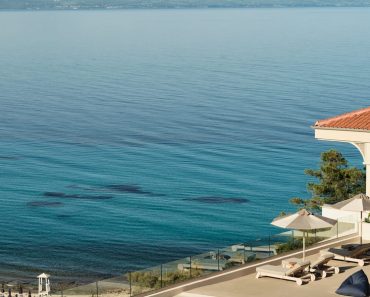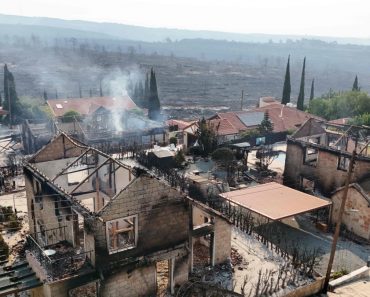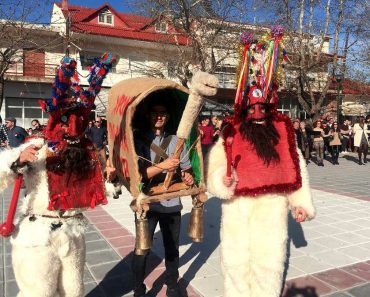The Greek Ministry of Culture has designated the Karya Railway Station in Fthiotida, Central Greece, as a historic site, following the recommendation of the Central Council of Modern Monuments. The station, tied to a tragic chapter of World War II, stands as a chilling testament to Nazi forced labor and the brutality inflicted on Jewish prisoners during the German occupation of Greece.
Located in a remote mountainous area, the Karya station and surrounding area served as a Nazi worksite during 1943, where between 300 and 500 Jewish men from Thessaloniki were subjected to inhumane forced labor under the direction of the German Todt Organization, a paramilitary construction corps of the Third Reich. Malnourished and exhausted, the prisoners were made to carve a railroad path through a rocky slope using their bare hands, enduring violence, extreme deprivation, and fatal working conditions. Many perished from exhaustion or execution.

A Todt sign at the Karya Station.
The work was meant to serve the logistical needs of the Wehrmacht, which was intensifying efforts to transport raw materials and troops across occupied territory. Prisoners were made to break rock with their bare hands, load wagons under the watch of armed guards, and endure extreme violence and starvation. Many perished from exhaustion or were executed on site.
Once construction ended, the site was abandoned. Today, only a stone building and a well remain from the original camp.

April 20, 1943. Arrival of the Jews from the Chris neighborhood at the worksite./ Greek Culture Ministry
A Forgotten Chapter of the Holocaust Comes to Light
Minister of Culture Lina Mendoni emphasized the importance of acknowledging Karya as part of Greece’s Holocaust memory.
“Karya is a site of forced labor and a testimony to the Holocaust in Greece. It is one of the places where the Nazis implemented the policy of ‘extermination through labor’ targeting Jewish populations,” she said.

The Karya worksite in 1943. The mountain is cut through, creating an artificial gorge. / Ministry of Greek Culture
She noted that only a handful of survivors returned to Thessaloniki in August 1943. The majority were deported to Auschwitz soon after.
One of the rare survivor testimonies is that of David Broudou (1924–2011), a Greek Jew from Thessaloniki who was deported to Karya and later escaped. His words remain etched in memory:
“My cousin was shot before my eyes in the forest. He could no longer work… He was 19, like me.”

Excavation work under the supervision of a German overseer./ Greek Ministry of Culture
International Research Uncovers Evidence
The station’s designation as a historic site is supported by compelling documentation from the international research project “Deadly Forced Labor in Karya – German Occupation and the Holocaust in Greece.” Conducted by Osnabrück University in collaboration with the Nazi Forced Labor Documentation Center and the Foundation Memorial to the Murdered Jews of Europe, the project brought forward critical archival and photographic evidence.
At the heart of the research is the photographic archive of German engineer Hans Hermann Rösler. Discovered in 2002 by Andreas Assael, son of a Holocaust survivor, the archive includes rare photos documenting the horrific conditions endured by Greek Jews in Karya.
The Ministry’s inspection confirmed material traces of the labor camp—along with the photos, these findings offer a sobering insight into this dark episode of history.
Exhibition and Future Plans
The announcement coincides with the ongoing exhibition “Karya 1943: Forced Labor and the Holocaust,” the first of its kind in both Greece and Germany to focus on the forced labor of Greek Jews under Nazi occupation. It is currently on view at the Benaki Museum (138 Pireos Street) until February 17, 2025, alongside a complementary exhibit at the Jewish Museum of Greece. The exhibition features rare artifacts, multimedia materials, survivor testimony, and educational programming for students and visitors.
Looking ahead, the Ministry of Culture aims to restore and repurpose the Karya station as a permanent exhibition space.
“The preserved photographic archive of Rösler is a rare documentation of a crime. The stone railway cut itself stands as a timeless witness to the Nazi policy of extermination through labor,” Mendoni stated.
“The designation of the Karya Railway Station is a step toward historical justice and the preservation of Holocaust memory in Greece.”

The mountain cut seen up close in 2025.
The initiative is part of a broader effort by Greece and Germany to confront their shared past and honor the victims of one of history’s greatest atrocities.






